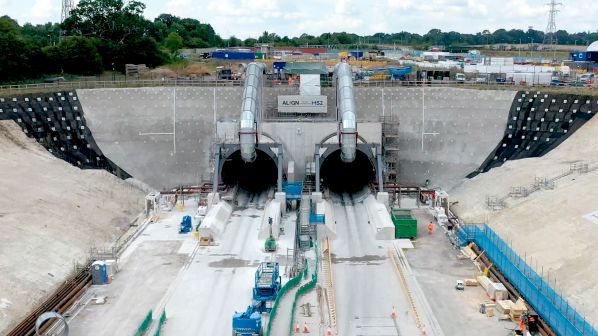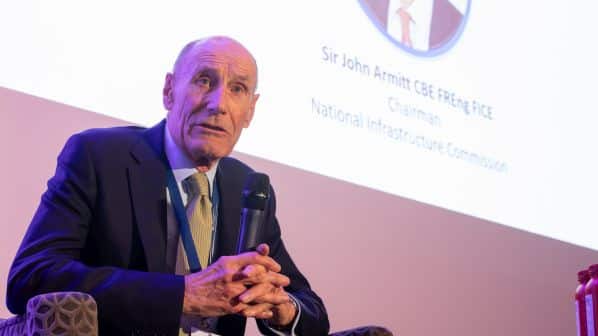BRITAIN’S Public Accounts Committee (PAC), a body that oversees government spending and is made up of MPs, has described the HS2 high-speed rail line between London and Birmingham as representing “very poor value for money.”
In a report published on February 7, the PAC lambasts the British government and Department for Transport (DfT) for failing to keep the project’s rising costs under control. It says poor cost management indicates a failure of governance and oversight across DfT and project organisation HS2 Ltd that reports to it.
The committee is particularly scathing of the government’s decision to cut back the project’s planned northern sections from Birmingham to Leeds and Manchester. The former was cancelled in 2021, with the latter axed in October 2023.
PAC says DfT acknowledges that the curtailed project, now totalling 225km, is poor value but claims that completing construction of the London - Birmingham Phase 1 is the best option as cancelling the project altogether would incur costs of £11bn (at 2019 prices).
HS2 Ltd’s estimated costs for Phase 1 are now £57bn against a budget of £44.6bn (at 2019 prices). The company estimates that inflation since 2019 will add a further £8-10bn to the cost, making a total in current prices of up to £67bn. DfT disagrees with the committee’s assessment and, in particular, that current estimated costs do not reflect a decision to seek private funding for the London section between Old Oak Common and Euston.
However, PAC says that it is highly sceptical that DfT will be able to attract sufficient private investment within the required timescale to successfully complete HS2’s London terminus at Euston.
Looking forward, PAC says DfT has considerable work to do to confirm exactly how the £36bn redirected from the cancelled sections of HS2 will be used over the next two decades, and how it will manage this long-term portfolio of projects.
A functioning railway
PAC also claims that DfT does not yet understand how HS2 will operate as a functioning railway following these recent changes. The committee says that it is vital that DfT now gets to grips with the programme to complete the project within the planned timescale of 2029 to 2033, while maximising what value it can for the taxpayer.
“HS2 is the biggest-ticket item by value on the government’s books for infrastructure projects,” says PAC chair, Dame Meg Hillier MP. “But here we are after over a decade of our warnings on HS2’s management and spiralling costs, locked into the costly completion of a curtailed rump of a project with many unanswered questions and risks still attached to delivery of even this curtailed project.”
Reacting to the PAC report, Mr Darren Caplan, CEO of supply industry body the Railway Industry Association (RIA), says: “Today’s report by the Public Accounts Committee raises many questions which remain unanswered, not least of which is how HS2 is going to operate as a railway. Ministers urgently need to make decisions on this point and others to ensure both sunk and future investment deliver value for money for taxpayers and the railway.”
Missed opportunity
And Transport for the North (TfN) chair Lord McLoughlin, describes the decision to stop HS2 at Birmingham as “a missed opportunity for the north, and the country as whole.”
“It wasn’t just the improved north-south connectivity it would have enabled, but the extra capacity it provided, both in terms of the new high-speed line and in the space freed up on the existing network to run more services,” McLouglin says. “This would have benefited passengers and freight.”
Separately, a report by Boston Consulting Group, also published on February 7, concludes that, across all types of infrastructure, Britain suffers from a worrying combination of high costs and slow delivery.
For details of high-speed projects around the world, subscribe to IRJ Pro.


